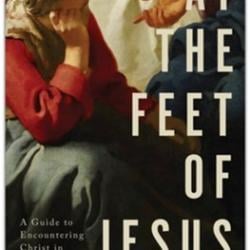Jesus saw that the Roman Empire existed, but it was not the only reality in the world -- he exercised his option to see many other realities and possibilities. Likewise, we can recognize that while today's world has some characteristics of a global empire with a serious compassion deficit, there are other options. We can look around and see signs of the coming of the kingdom of heaven, inspiring us to create a more humane social order.
The Tibetan Buddhist sages understood this optional quality of reality. The Tibetan Book of the Dead is a guide to the soul as it passes through the experiences of eternal life at physical death. Each chapter is the soul's encounter with a different dreadful demon, and each chapter ends with an admonition to the soul to recognize that the demons are optional interpretations, that the soul can move on and experience the process of eternal life in a positive way. This is excellent advice for living as well as for dying.
There are nights when I wake up in the middle of a terrible dream, and it takes a long time to remember that absolutely everything in it is optional. I can take that dream gun out of the hands of the dream bad guy and turn it into a dream paintbrush and paint a glorious dream desert sunset and then dream-walk into that sunset, if I choose. But in the midst of the dream, I forget that I have such a choice between hell and heaven. I'm too busy clutching my idea of what I am.
In the midst of everyday life, I forget that I have a choice about how to react when a guy in a big red pickup truck thunders around my car, cuts me off at a freeway off-ramp, and forces me to stand on my brake pedal. I can interpret that incident as an outrageous insult to my person, a gross violation of propriety worthy of my righteous wrath, and an appropriate time for the use of angry hand and finger gestures. Or I can experience it as just another of those common things that happens when I drive my car, no different from slowing down at an intersection or dodging a piece of wood lying on the roadway as I daydream of more pleasant things. One interpretation is no more or less "correct" than the other. But one lands me in hell, and the other in heaven. I get to choose between them.
Salvation is the positive interpretation of life and the universe: choosing bliss instead of torment; recognizing that since my real Self is one with God, who is eternal, I don't need to cling so desperately to my body or to my ego. This is the salvation that Jesus offered as he reminded his followers not to worry, not to clutch after transitory things, not to fear the loss of the body when the soul is eternal. This is the salvation he offered when he reminded his disciples that "the kingdom of heaven is among you." It is already available in this imperfect, sometimes painful life. Am I saved? Yes, sometimes. Am I damned? Yes, sometimes. But Jesus gave me the good news that I have a choice between the two, throughout life and even through death.
Even in his final minutes, Buck knew he had a choice, and he made a decision: "Let's go!"
This article is excerpted from Open Christianity: Home By Another Road by Jim Burklo (St Johann Press, 2000). Rev. Jim Burklo is the Associate Dean of Religious Life at the University of Southern California, and is also the author of Birdlike And Barnless: Meditations, Prayers, And Songs For Progressive Christians (St Johann Press, 2008). His website is www.jimburklo.com and he regularly blogs at Musings at The Center for Progressive Spirituality.




